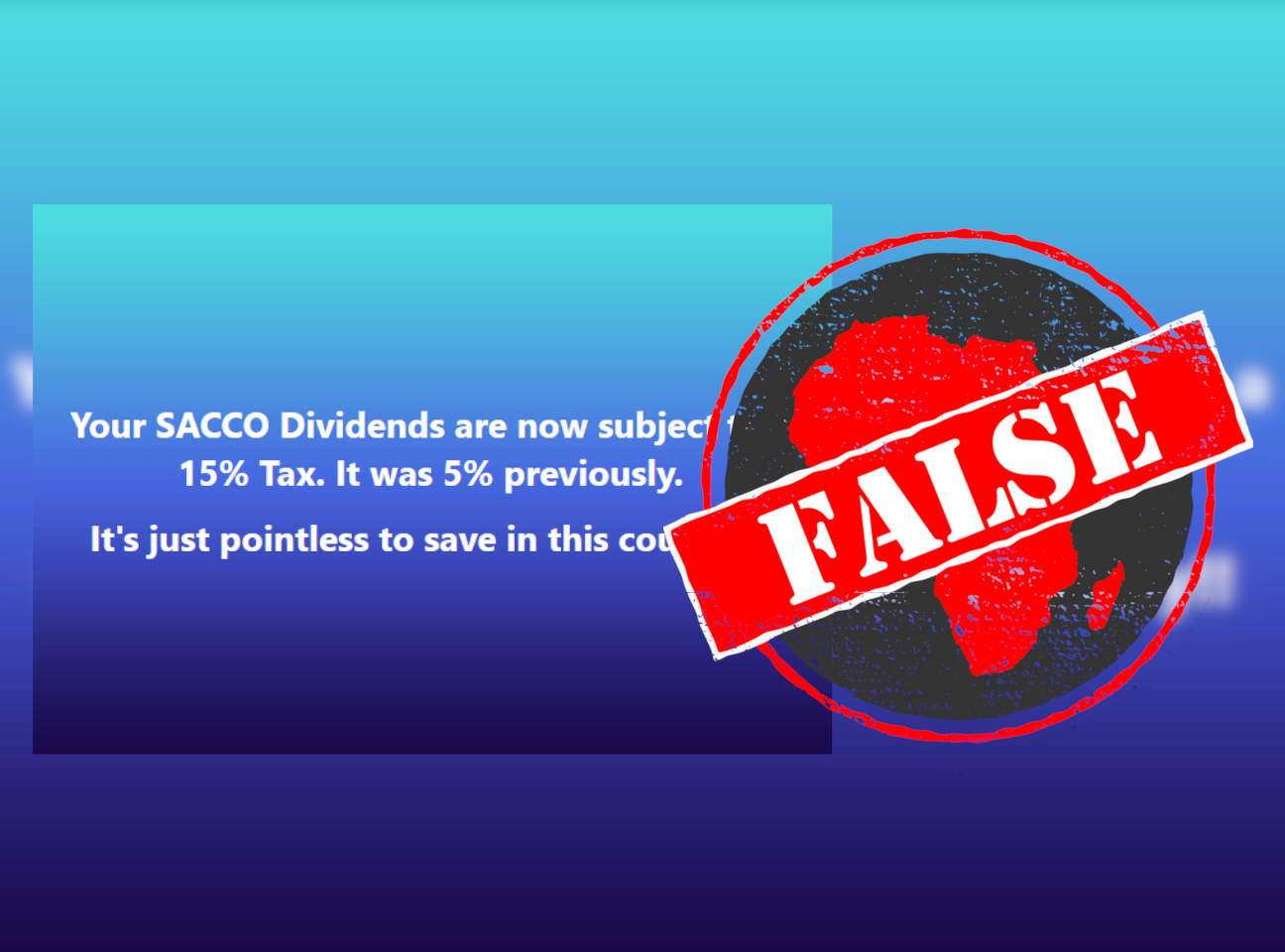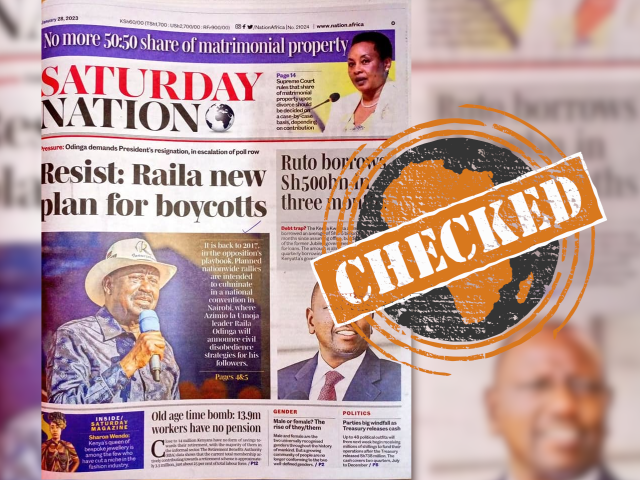IN SHORT: The Kenyan government is ramping up its tax collection efforts, but rumours that Sacco dividends will be taxed 15%, up from 5%, are not true.
According to a claim circulating on Facebook, Sacco dividends earned in Kenya are now attracting a 15% tax, having risen from a 5% rate previously.
“It’s just pointless to save in this country!” reads one post.
Sacco is an abbreviation for savings and credit co-operative. Saccos are member-owned financial institutions that offer both savings and credit services to their members.
Since assuming office in August 2022, William Ruto's government has been under pressure to reduce the high cost of living, amid criticism of a proposal to raise taxes and cut costs.
In a bid to cut down on borrowing, the Kenyan government has been ramping up its tax collection, including considering monitoring mobile money transactions. The national treasury also wants to raise the price of excise stamps, also known as sin tax, which will see a rise in prices of excisable goods, such as alcohol and cigarettes.
The claim has been posted here, here, here, here, here, here, here and here.
But has the tax rate for Sacco dividends risen to 15% from 5%? We checked.

Resident tax rate for dividends remains 5%
According to Kenya’s Income Tax Act 2021, the resident tax rate for dividends is 5% of the amount payable, but 15% for non-residents. This is an unchanged tax regimen for Sacco dividends.
To confirm the actual taxes, Africa Check reached out to Safaricom Sacco, Sheria Sacco and Mhasibu Sacco to ask how much their Sacco members were taxed on their dividends.
The three Saccos confirmed that the withholding tax rate remains the same, as stipulated in the 2021 Tax Act.
Republish our content for free
For publishers: what to do if your post is rated false
A fact-checker has rated your Facebook or Instagram post as “false”, “altered”, “partly false” or “missing context”. This could have serious consequences. What do you do?
Click on our guide for the steps you should follow.
Publishers guideAfrica Check teams up with Facebook
Africa Check is a partner in Meta's third-party fact-checking programme to help stop the spread of false information on social media.
The content we rate as “false” will be downgraded on Facebook and Instagram. This means fewer people will see it.
You can also help identify false information on Facebook. This guide explains how.



Add new comment